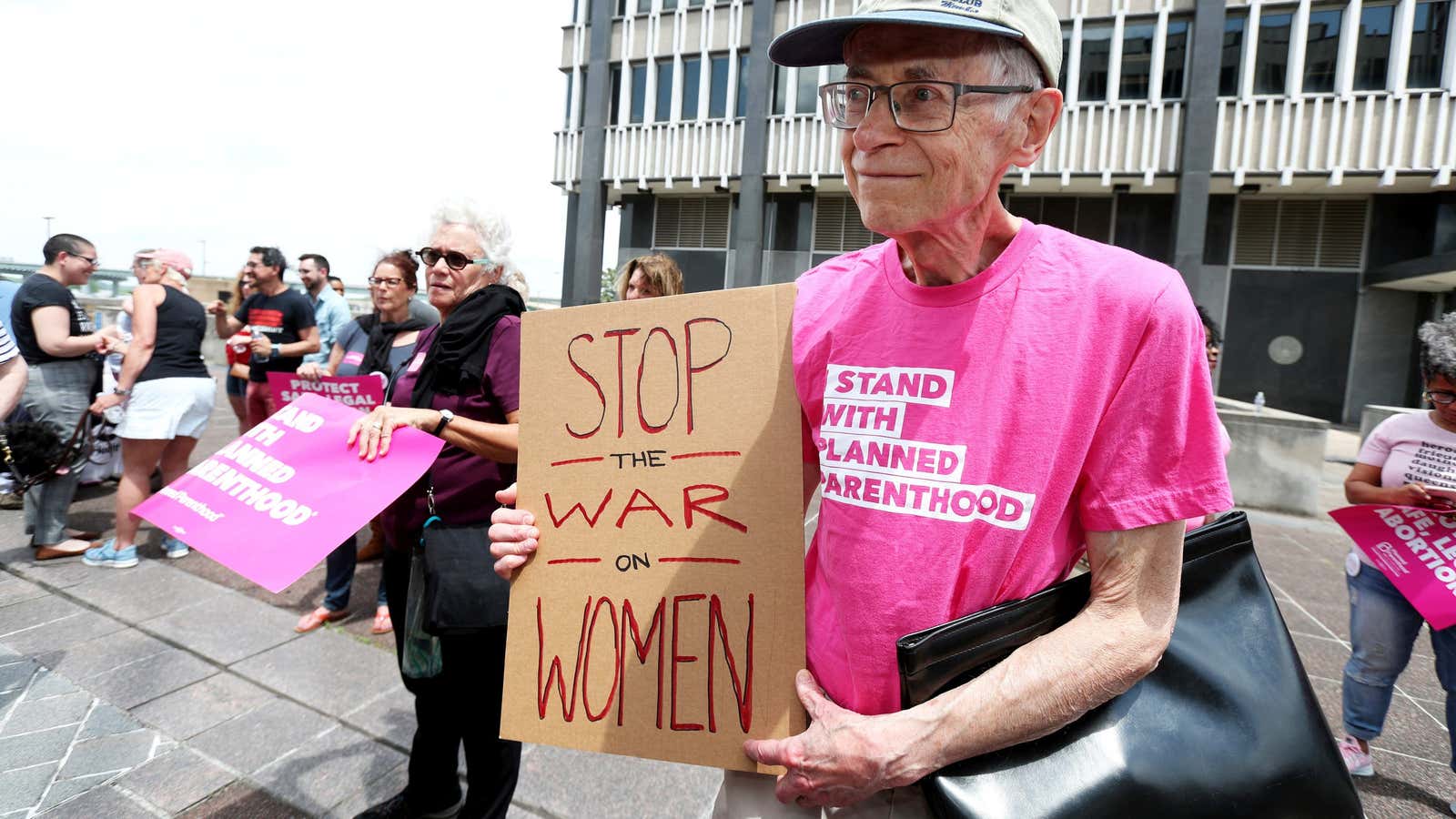Yet another state is debating a near total ban on abortion.
A state senate committee in Tennessee began hearings this week on a proposed amendment to its so-called “fetal heartbeat” bill. If the amendments are incorporated into the bill, which is expected, the bill would essentially become a full ban on abortion.
The Tennessee legislature will vote on the final bill in January. And if it passes, it will join a growing number of restrictive abortion laws that conservative state governments have adopted across the country in recent months.
At the hearing, prominent anti-abortion activist and lawyer Jim Bopp presented his arguments in favor of the amendments. And he bristled that the country is a long way from a nationwide ban on abortion. He noted that the Supreme Court justices who personally oppose abortion haven’t taken on the mission of overturning Roe v Wade, and aren’t likely to in the near future. Bopp, who was one of four Christian white men who testified on Monday against abortion rights (a fifth speaker, a law professor, discussed the constitutionality of the amendment), opposes exceptions for even rape and incest.
“Electing a president who will nominate supreme court justices and a senate who will confirm them…is the only reliable way to build a pro-life majority in the Supreme Court,” he said at the hearing in Tennessee.
That betrays a misunderstanding of the role of the Supreme Court, whose justices are not supposed to act according to their personal beliefs and politics, but to their fair reading of the law. But Bopp and other anti-abortion activists aren’t just ignoring the essence of America’s justice system in their push to outlaw abortion—they are acting against the will of the majority of Americans.
According to a survey published today (Aug. 13) by the Public Religion Research Institute (PRRI), a nonpartisan research organization, a majority of Americans (54%) said abortion should be legal in at least some circumstances. The survey, part of PRRI’s American Value Atlas, looked at attitudes towards abortion and contraception, conducting more than 40,000 telephone interviews across all states.
Predictably, a larger percentage of people support legal abortion in the northeast and in western coastal states. That said, a majority of Americans in otherwise conservative states like Florida and Arizona also supports abortion rights. Outside of Louisiana (34%) and Arkansas (39%), no other state’s support for legal abortion is under 40%.
Even in states where the majority of people is against abortion, only a small fraction supports total bans of the kind the Tennessee bill would impose. Overall, across the country, only 15% of people think abortion should be illegal in most or all cases, and even in the states where support for abortion is the lowest, not even a fourth of the respondents support full bans. In Louisiana, where support for stricter abortion restrictions is the highest, only 23% of people support total bans. In Mississippi, 22% of respondents supported total bans, and in Arkansas and Nebraska, just 21% supported such regulations. In Tennessee, in fact, only about a fifth of the people interviewed would approve of the state’s amended bill.
This isn’t a new development either: America’s opinion on making abortion illegal in all circumstances has remained essentially steady since the mid-1970s, and never more than a fourth of Americans has supported total bans.
